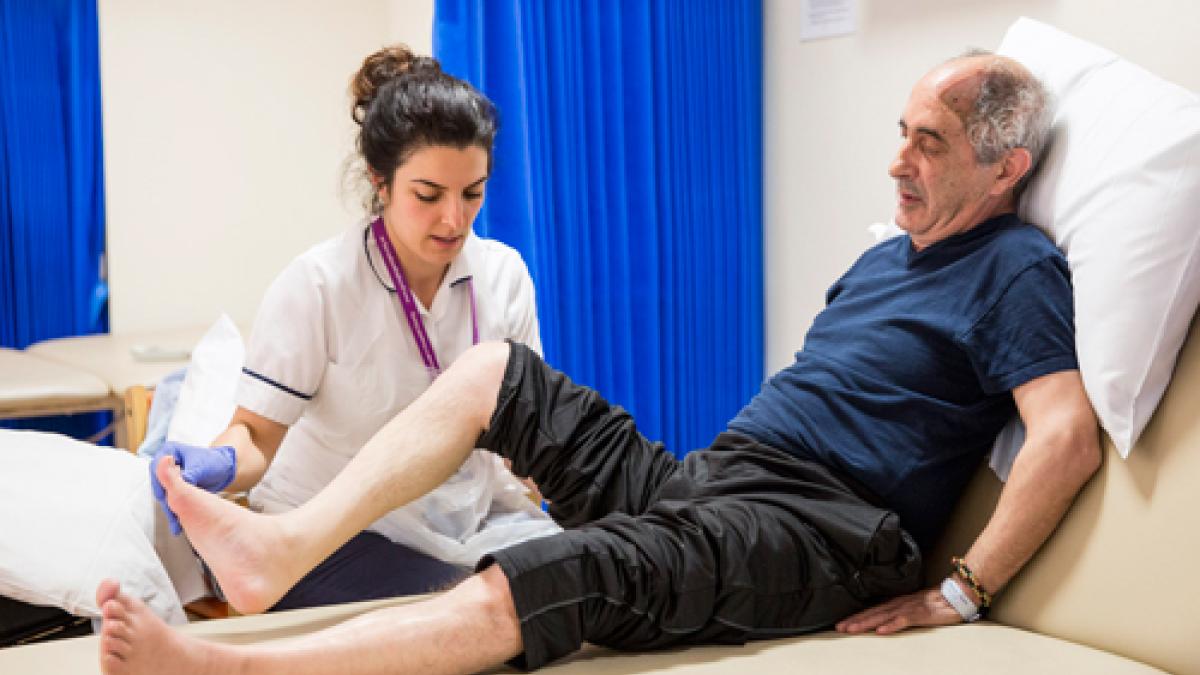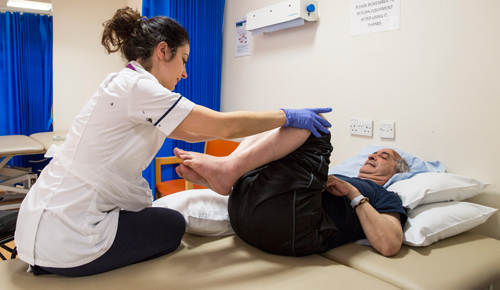London’s largest specialist neuro-rehabilitation centre officially opened last month for patients with a range of complex needs.

Physiotherapist Yiota Constantinou treats a patient at the re-located Wolfson Neurorehabilitation Centre. Photo: Jonathan Perugia
The new Wolfson Neurorehabilitation Centre features a purpose-built specialised interdisciplinary rehab unit with 36 inpatient beds. It also provides specialist outpatient services and a day case cognitive assessment programme.
The centre was relocated from a smaller original site in Wimbledon to its new location at Queen Mary’s Hospital, Roehampton.
It retains 10 acute beds at St George’s Hospital, Tooting, where it was temporarily based while the new unit was built.
The Wolfson physiotherapy team, which comprises nine physios and 3.5 technicians, works closely with community physio teams.
Principal physiotherapist Dr Karen Baker, said: ‘One of the benefits of the new centre is that we now have in one building access to specialised spasticity, orthotics, gait lab and functional electrical stimulation services.

‘This means treatment with acute patients can potentially begin before they are transferred to the rehab centre. We’re also linked to amputee services and so are able to see trauma neurology patients.
‘As far as we are aware, we are the only site in London able to treat a mix of highly complex patients and those with lower level needs, some of these may be patients coming from the community who require short bursts of intensive rehab.’
Responding to the development, Jakko Brouwers, chair of the Association of Chartered Physiotherapists in Neurology, said: ‘It’s good to see the proven service model of combining acute and rehabilitation services take shape for London, which helps create a critical mass and seamless rehabilitation experience for patients.
‘We hope that the new centre will become an inspiration for other services and a leader in sharing the burden of furthering the knowledge base in neuro rehabilitation, and especially on integrating community services at tertiary, secondary and primary care level with their own service.’
Number of subscribers: 1